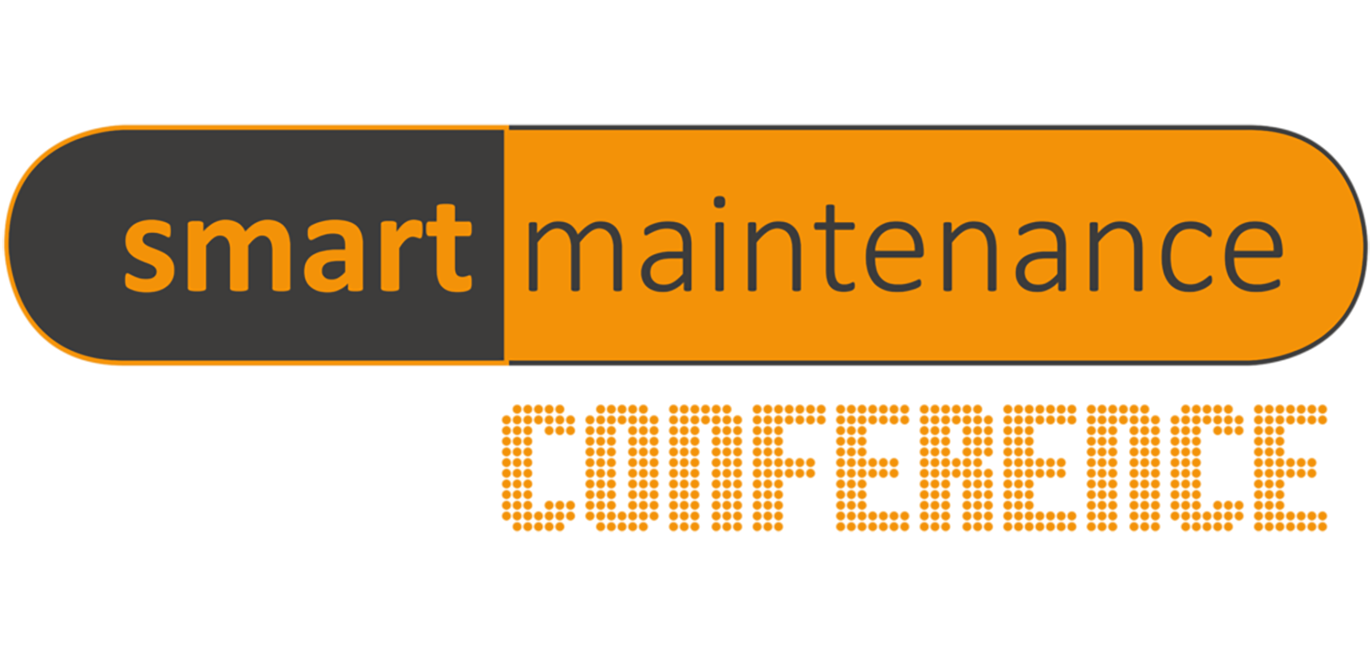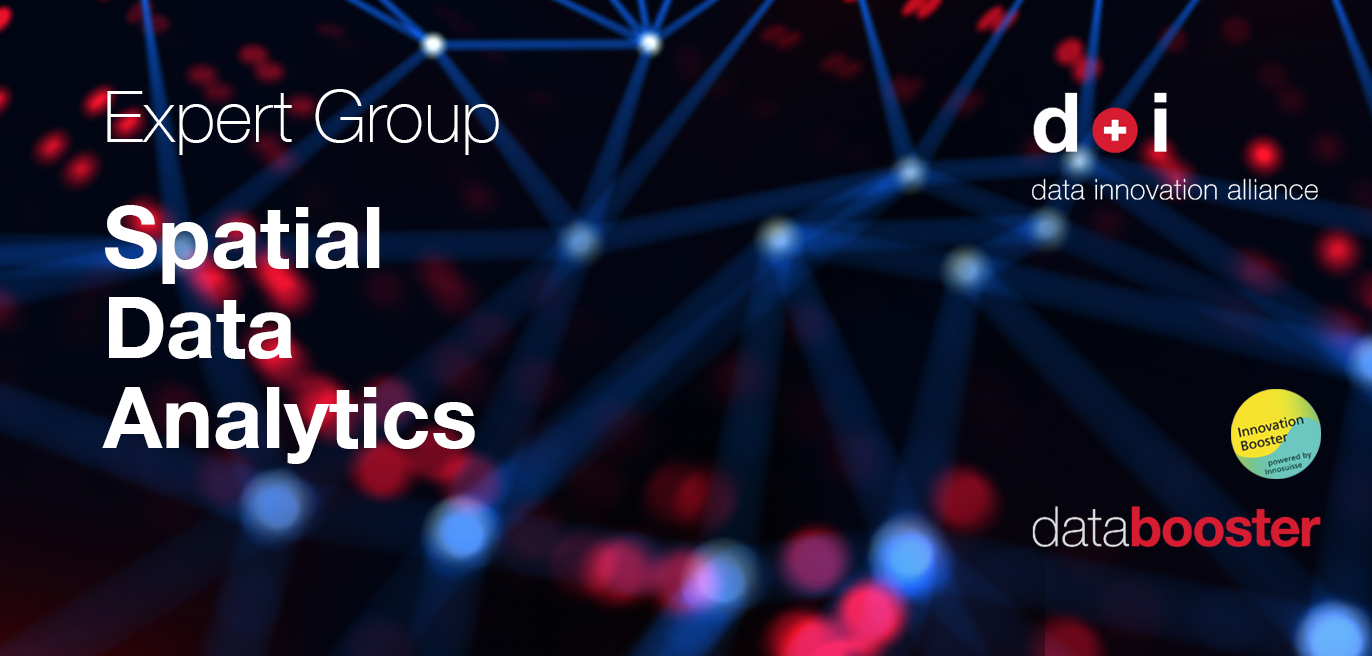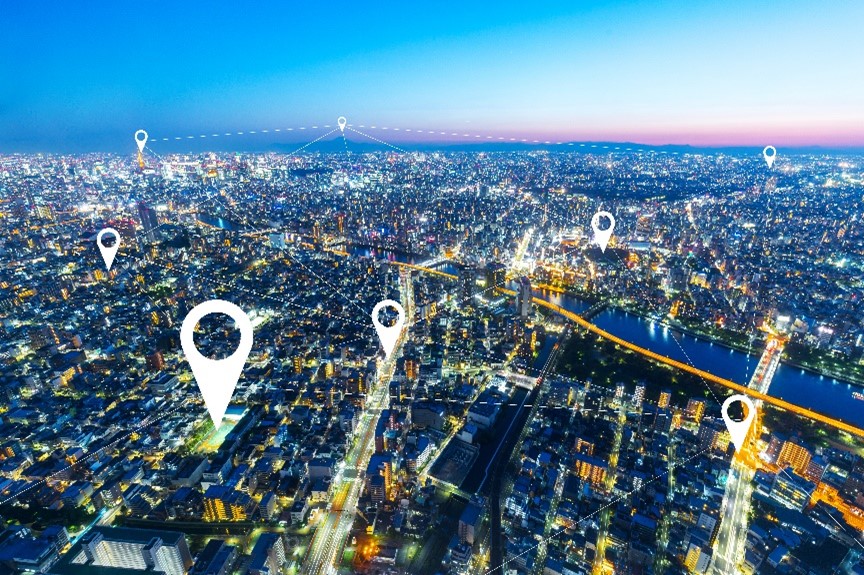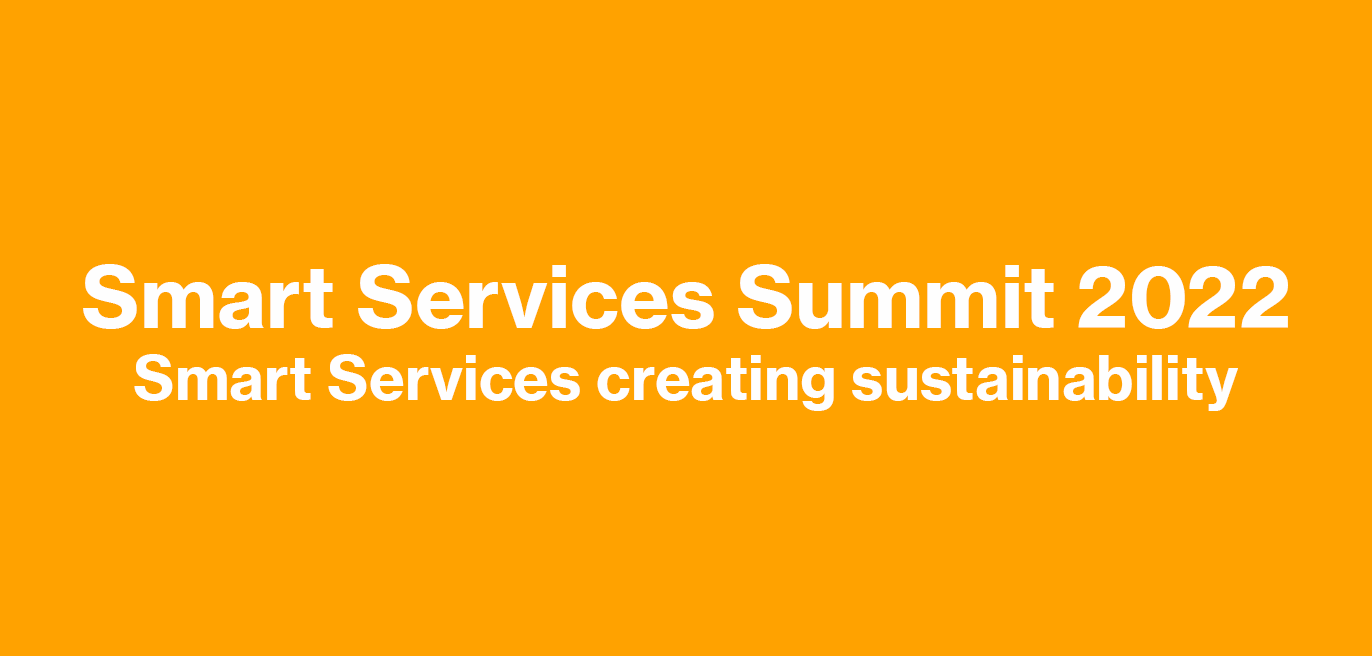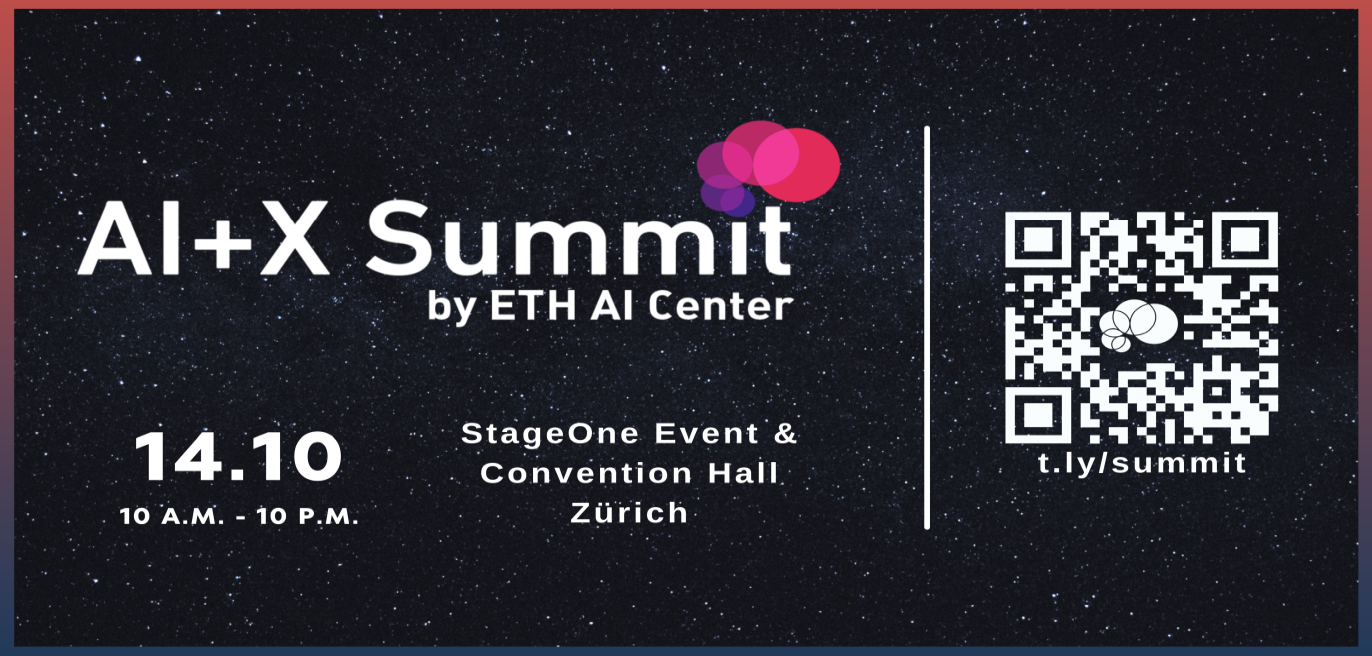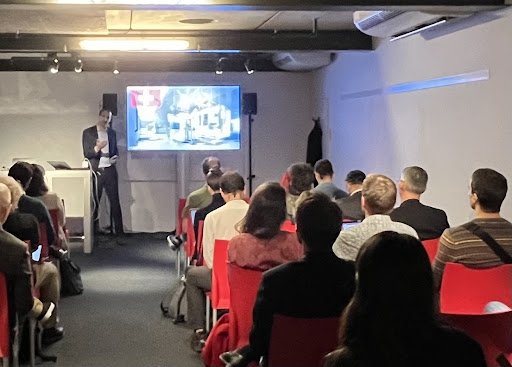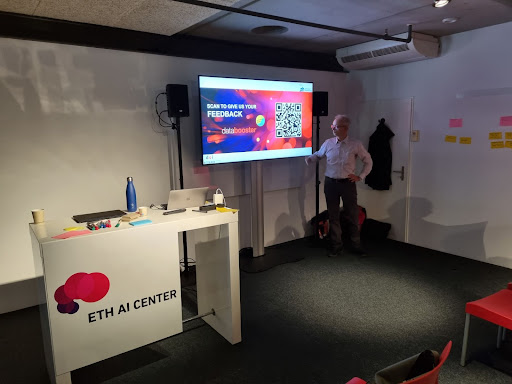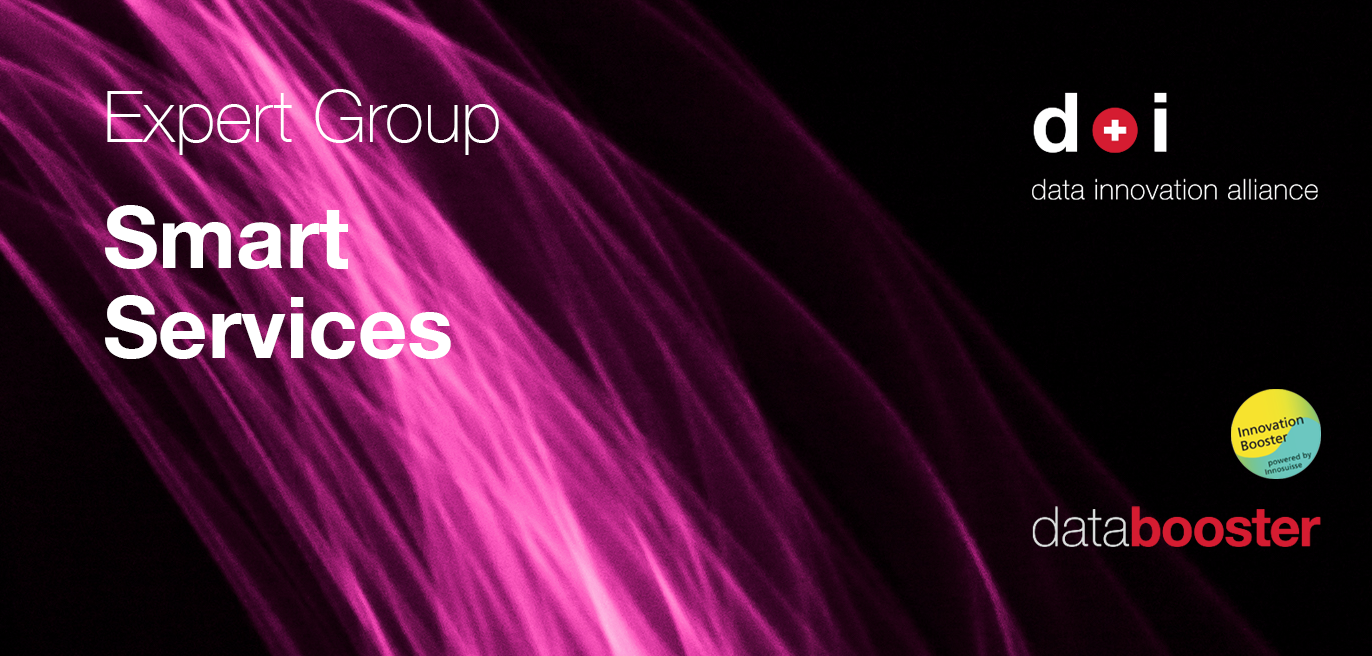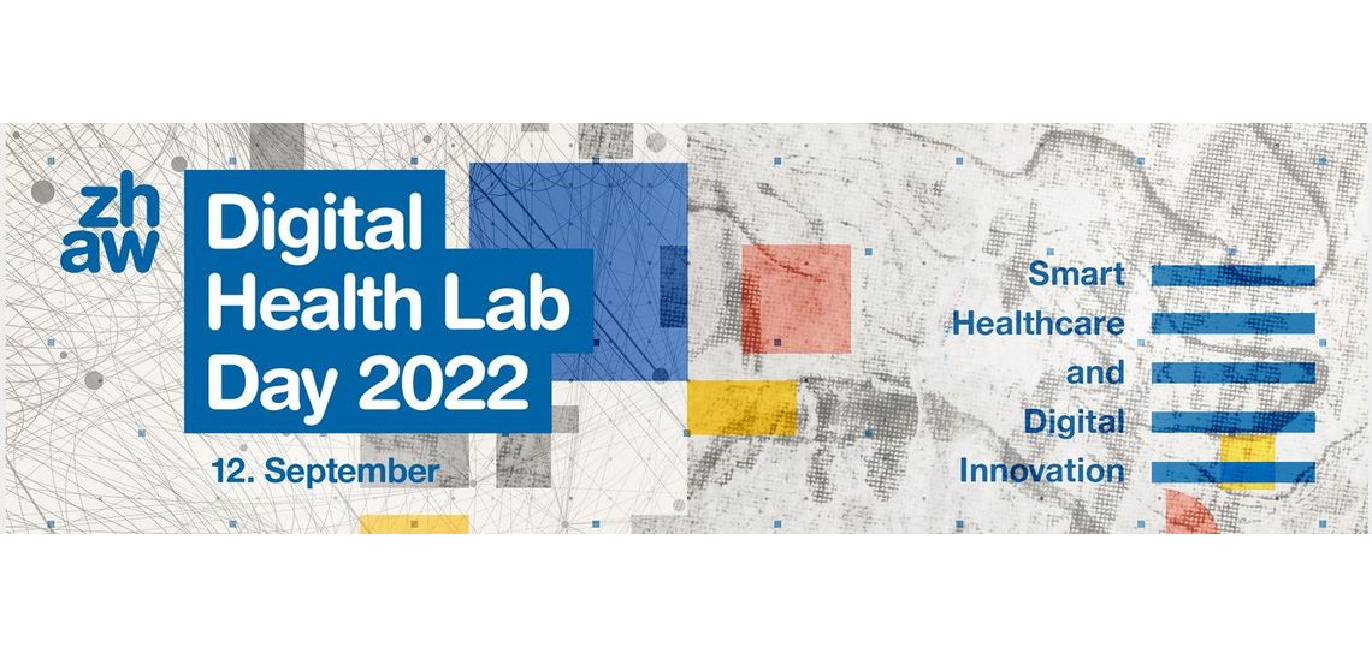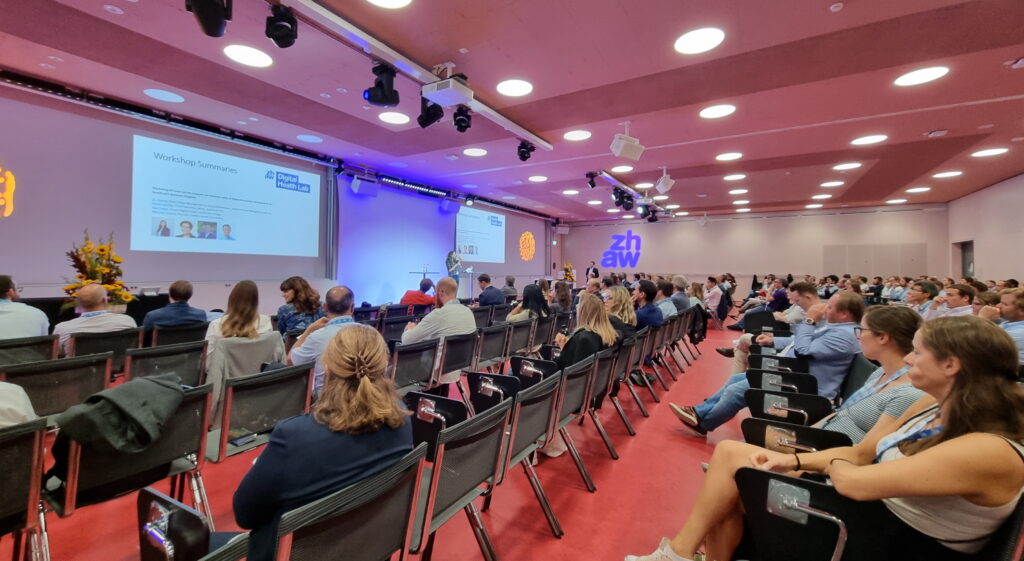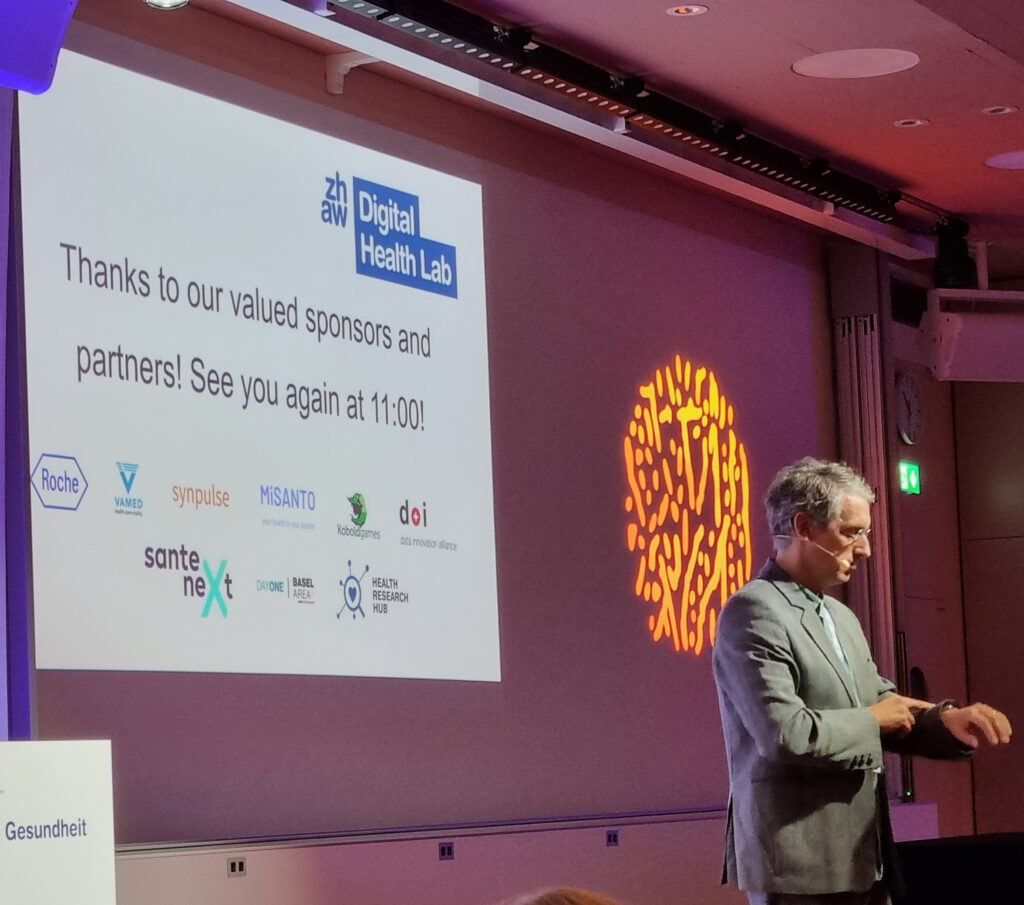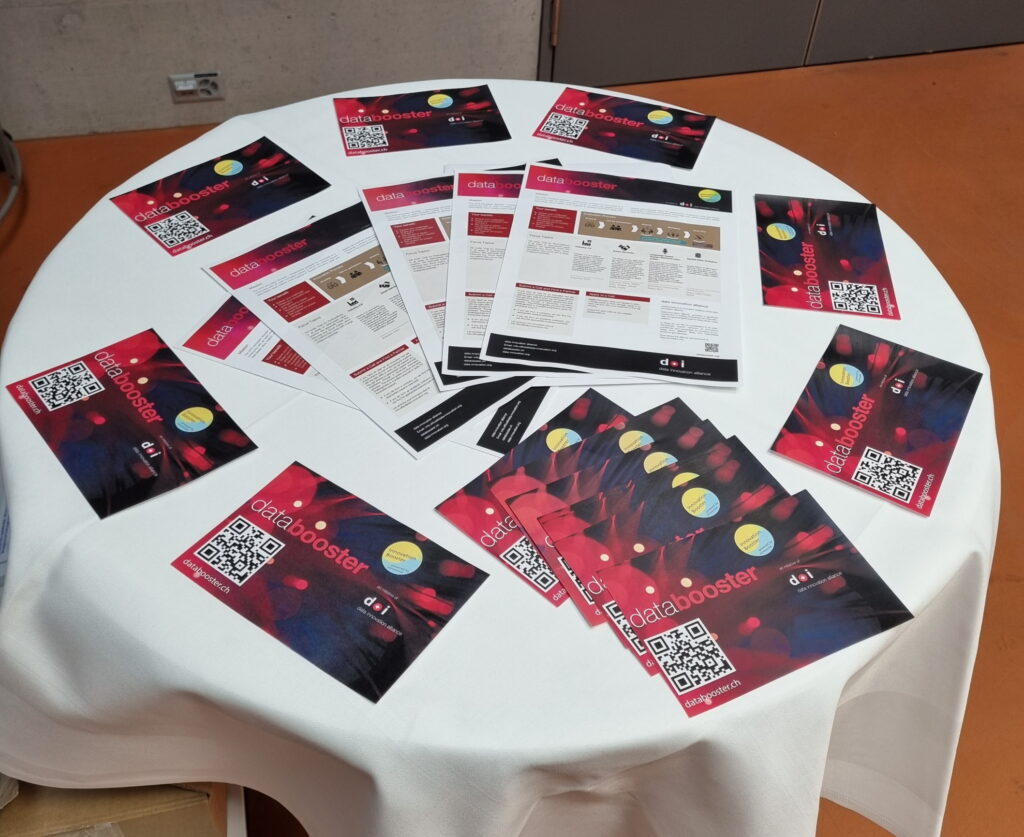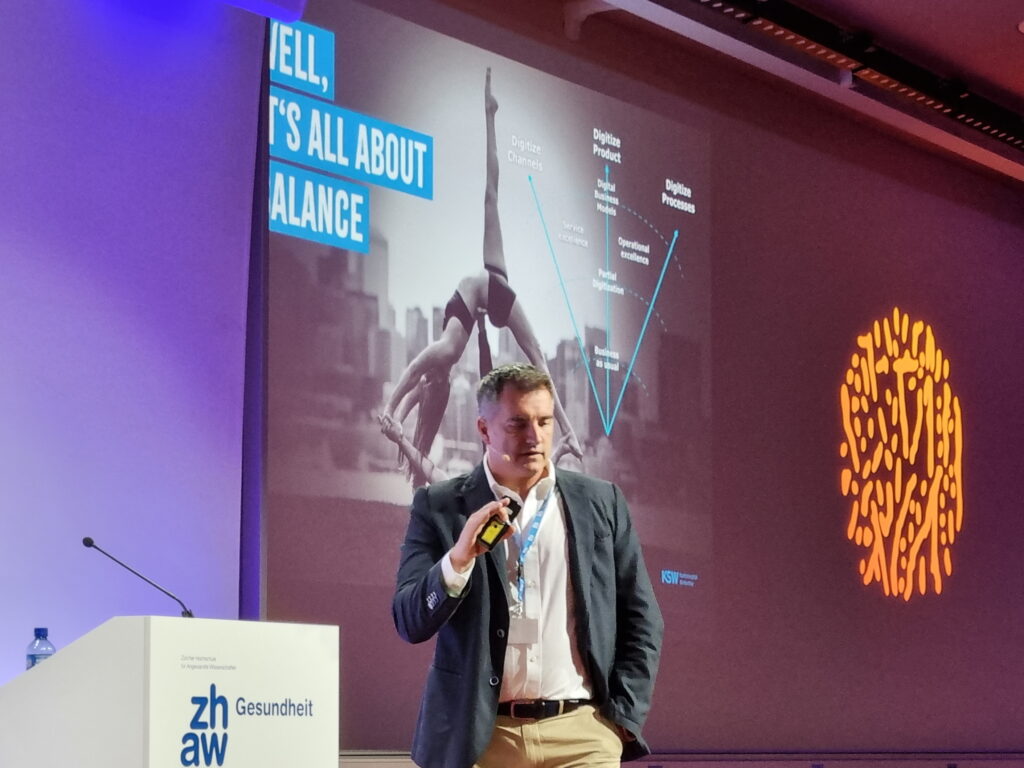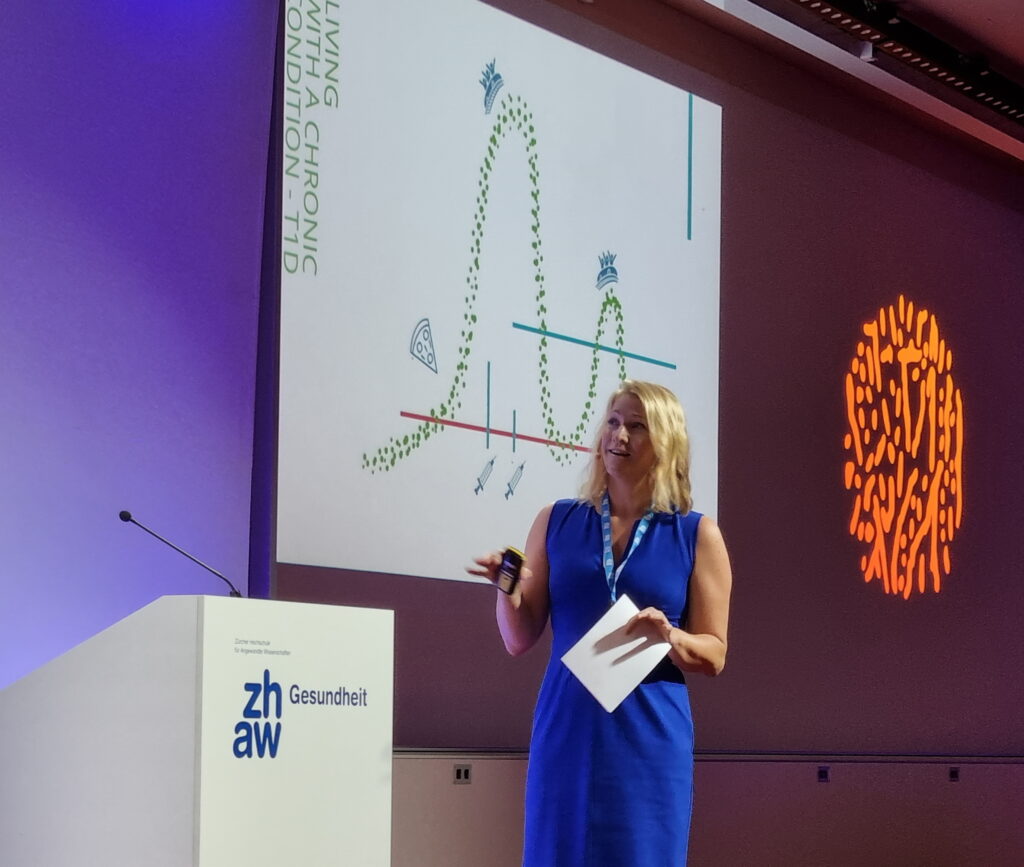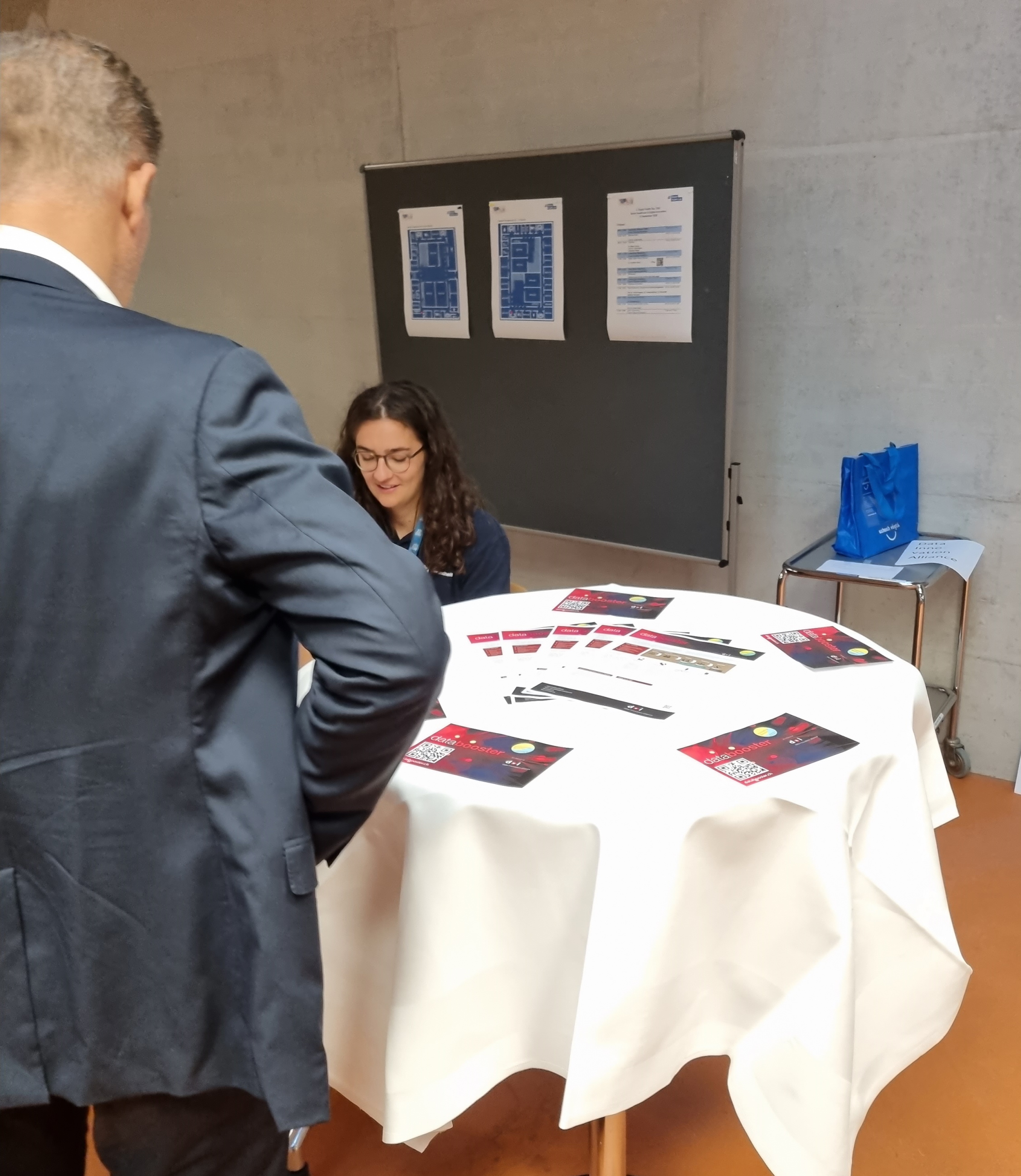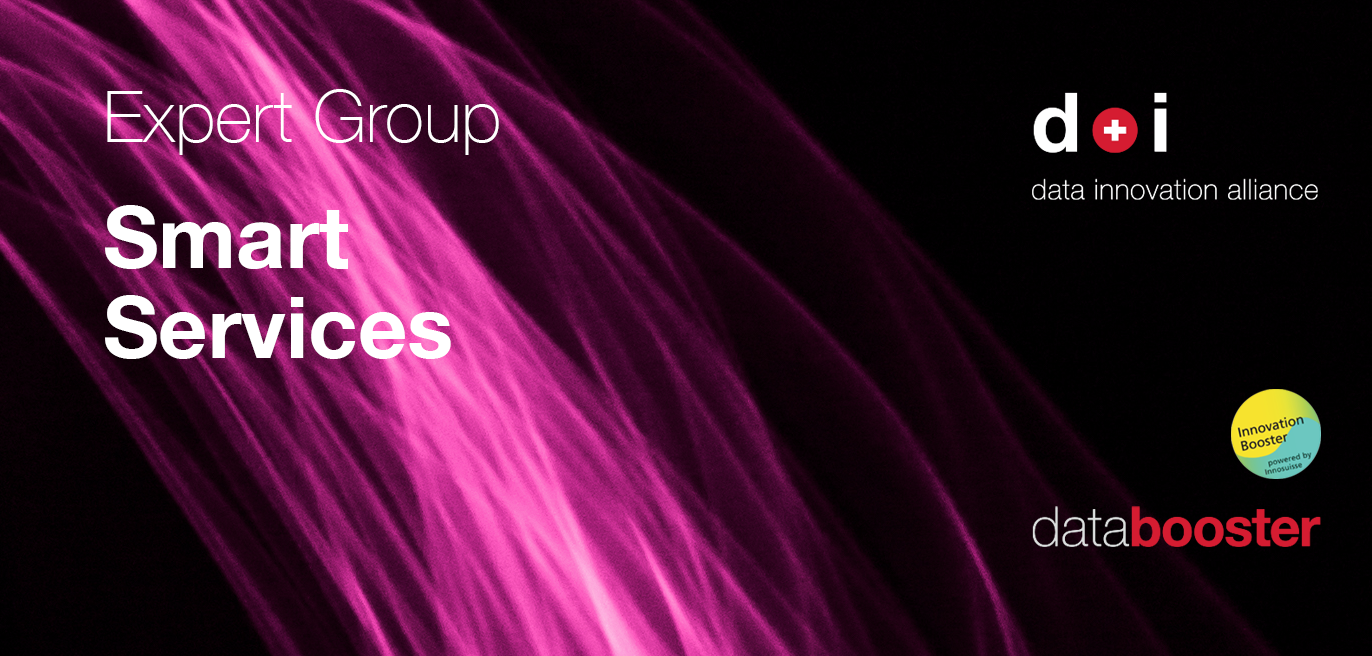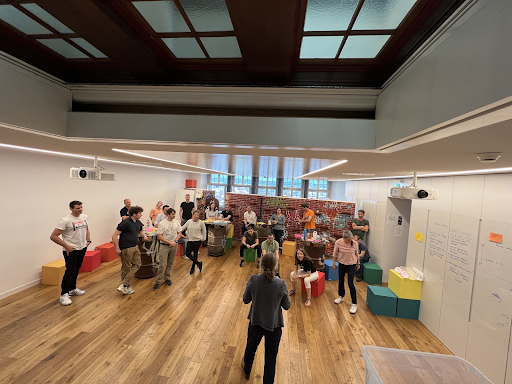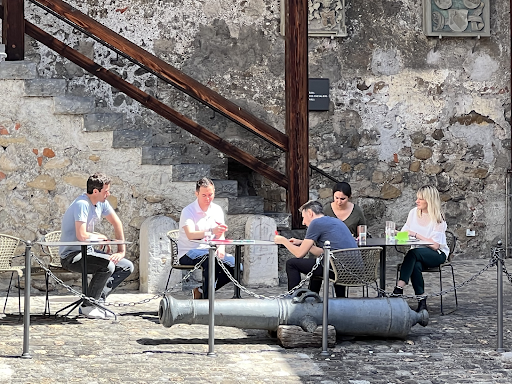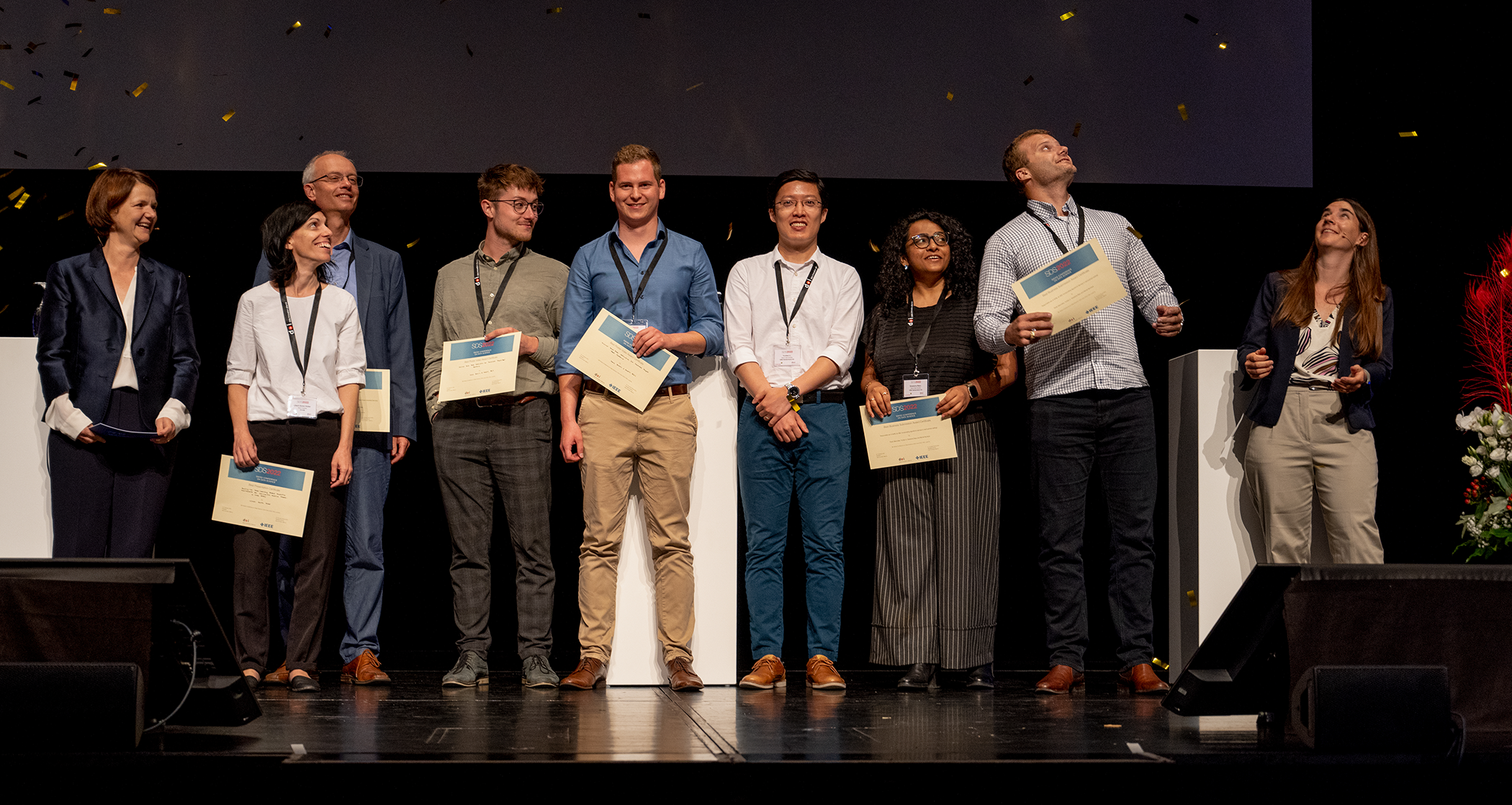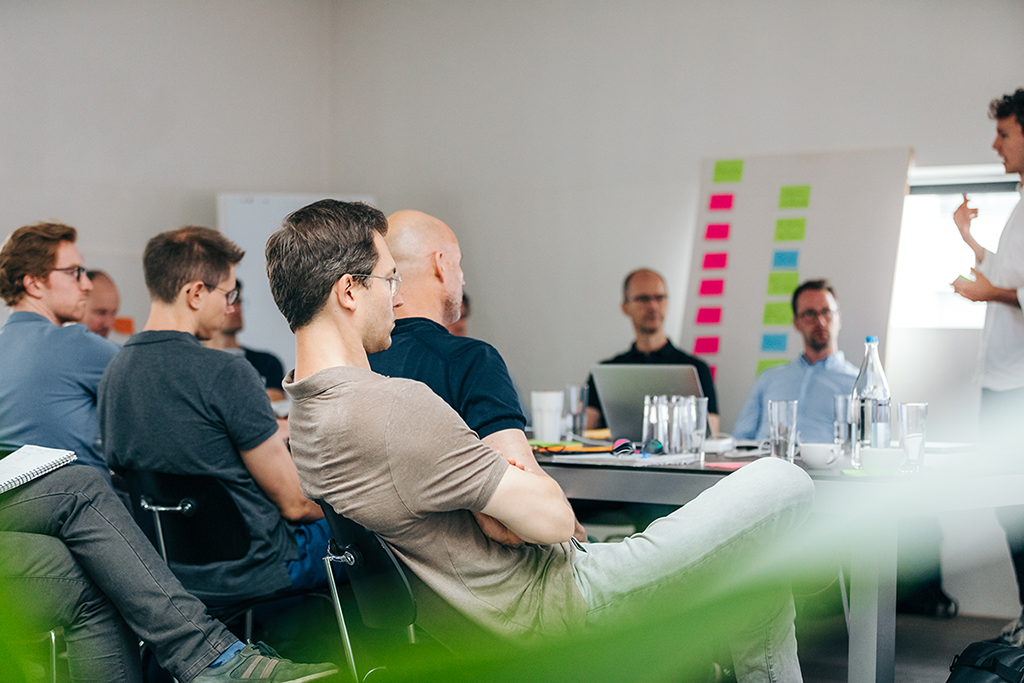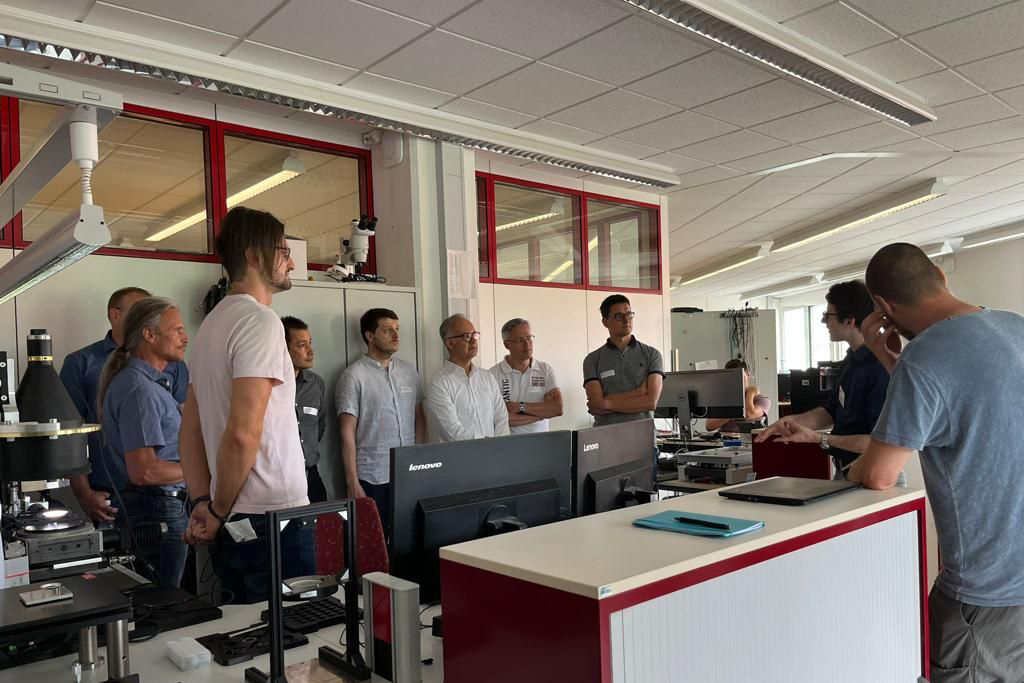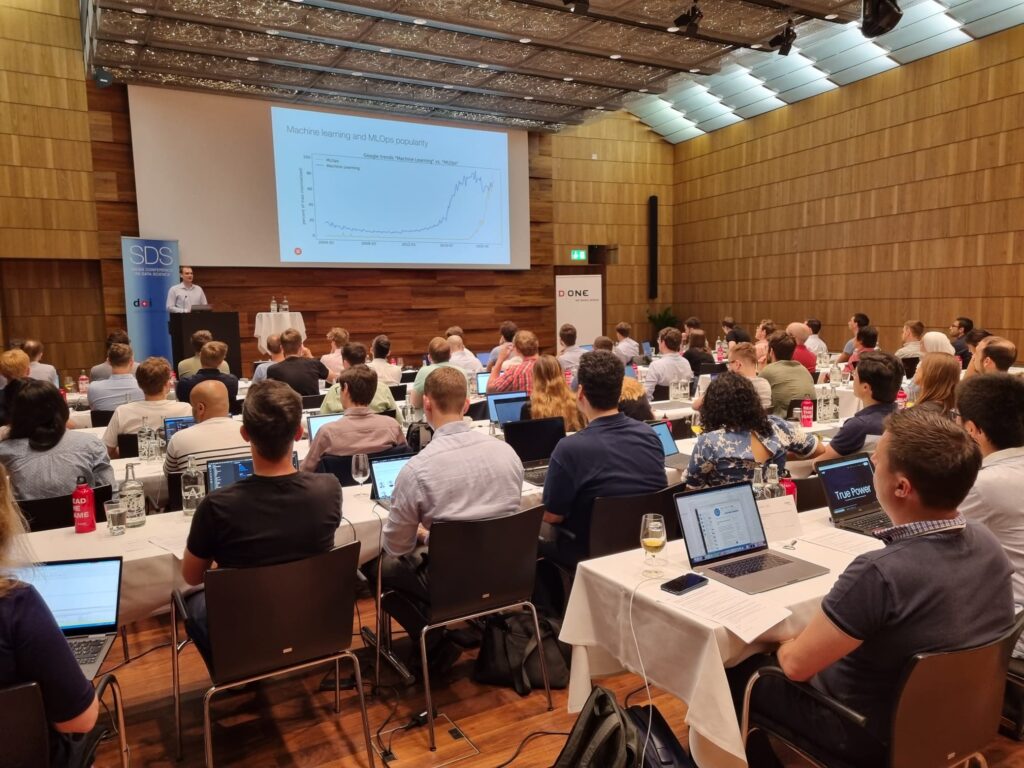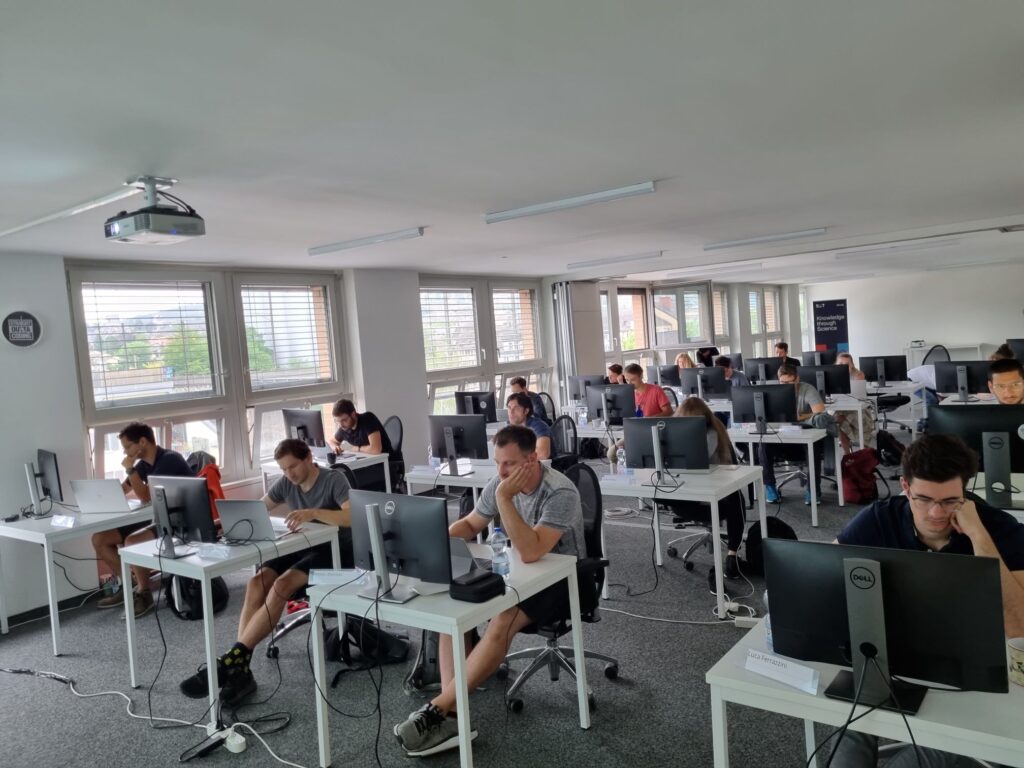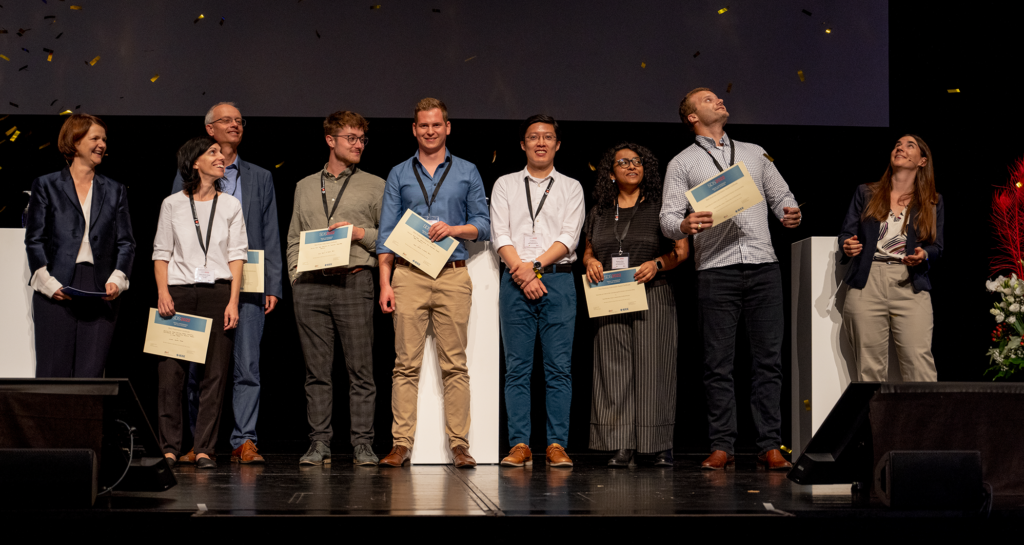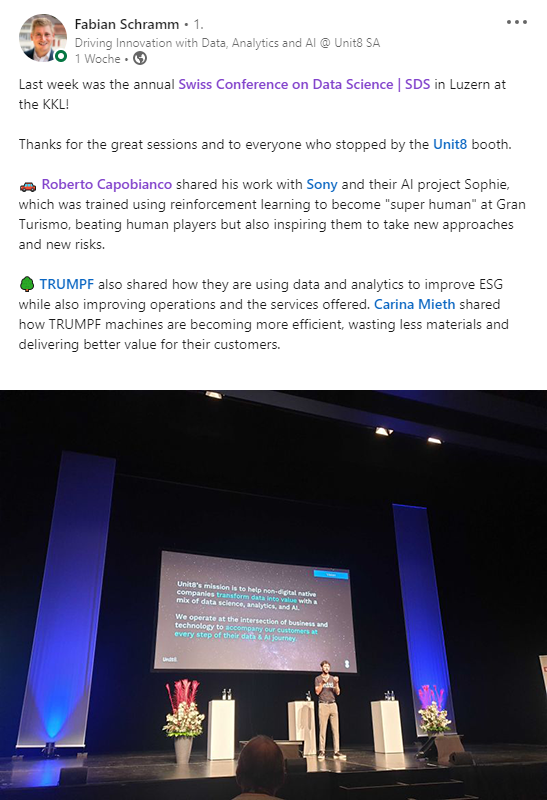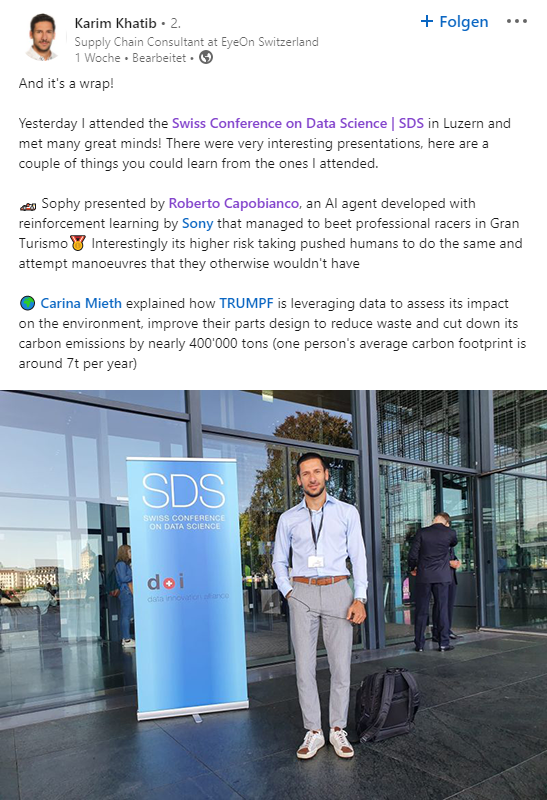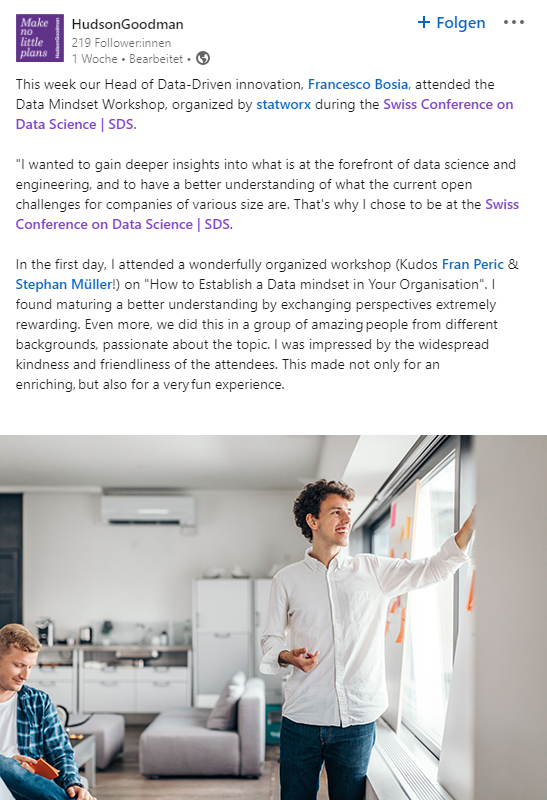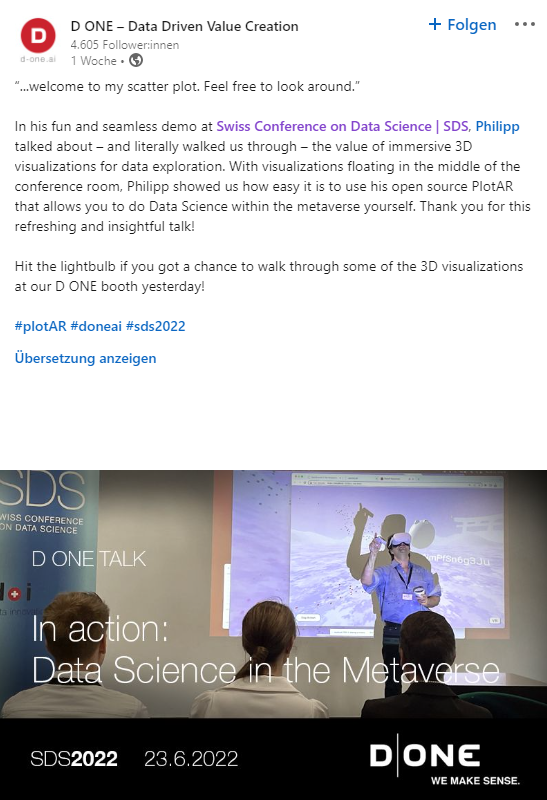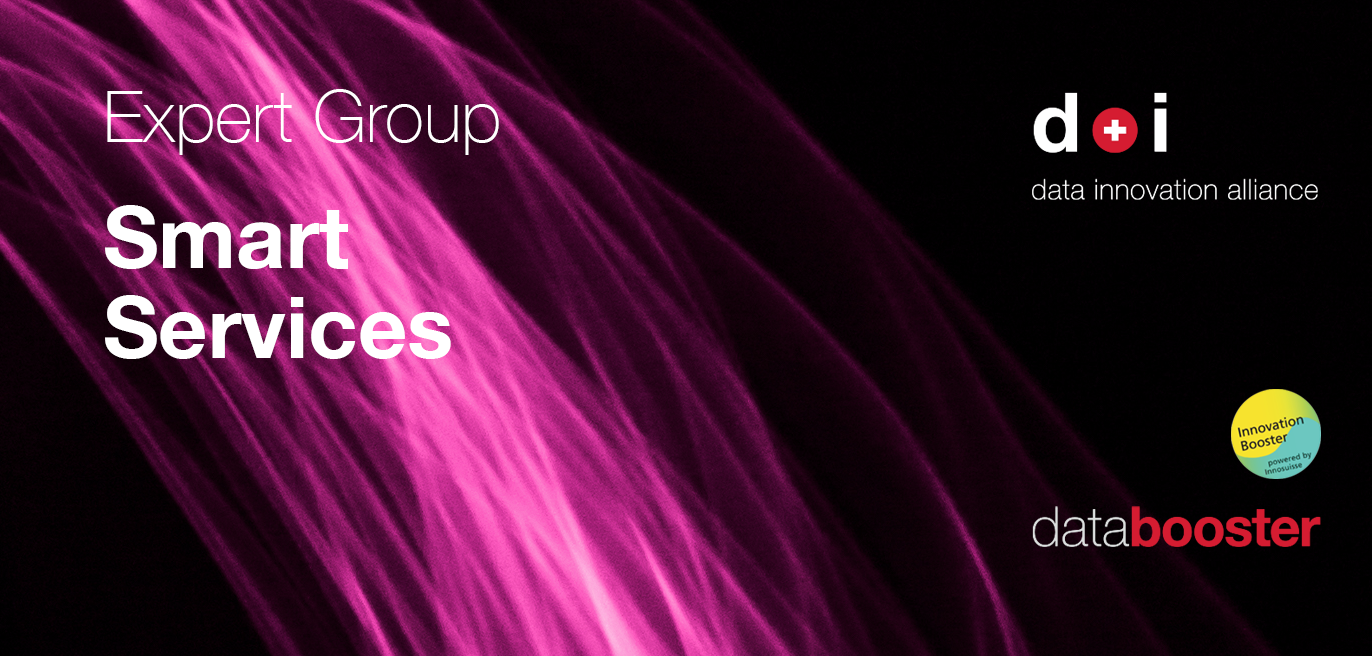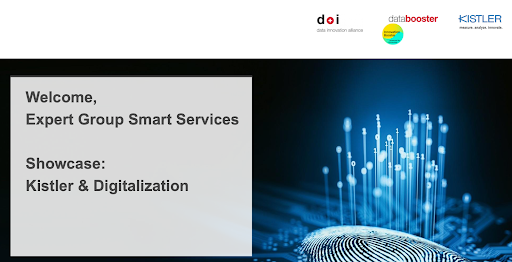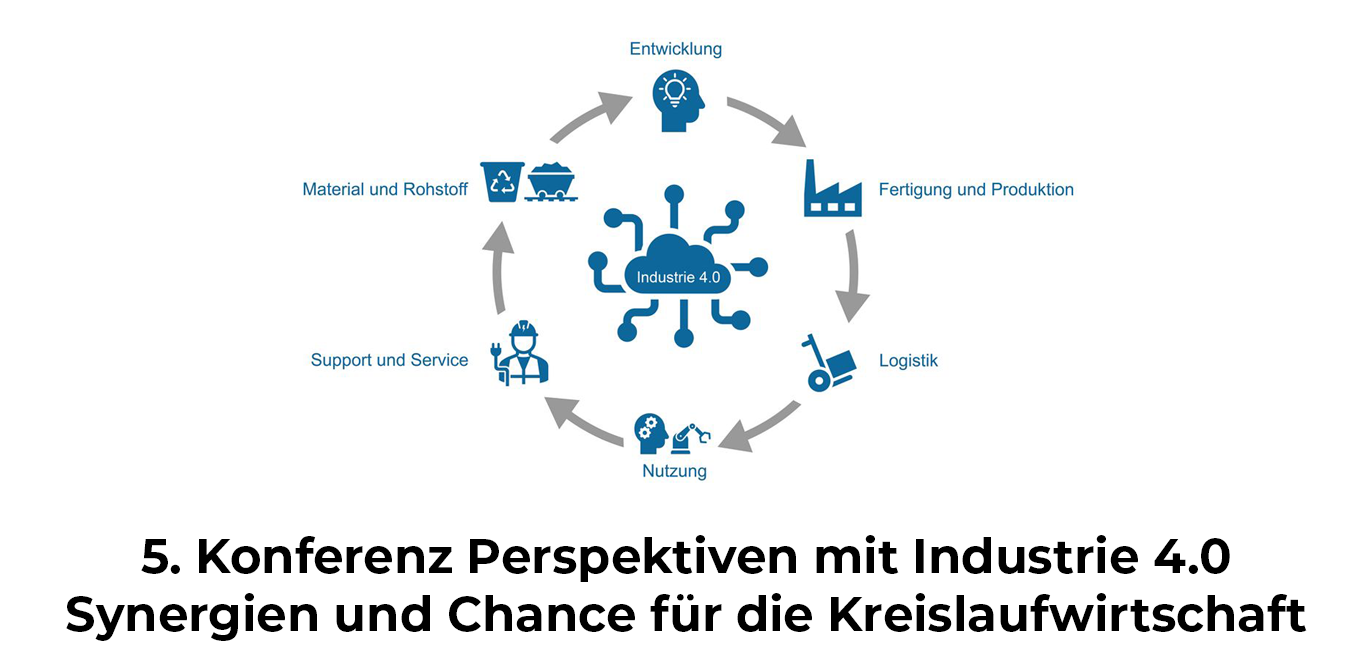Dilemma between value creation and value destruction with data
By Jürg Meierhofer, ZHAW
Successful Databooster presentations at the “smart maintenance insights” conference
On November 23, the “smart maintenance insights” conference was held in collaboration with easyfair. The Databooster framed the event with presentations by Andrew Paice and Jürg Meierhofer, who highlighted the focus topic “Dilemma between value creation and value destruction with data”.
Andrew Paice opened the presentation series with the topic “What data is enough for smart maintenance?”. The presentation started from the common view that data is seen as a panacea – “If I have enough data, I can do anything with machine learning – e.g. smart maintenance”. He outlined that, in contrast, more information does not necessarily lead to better decisions. These issues are particularly pressing in maintenance, where you really need the right data to make good decisions. How do you know if you have the right data or enough data? In the presentation, the use of machine learning was discussed and explained with examples from research.
After two very interesting industrial contributions by Thomas Faulhaber from Membrain Switzerland and Dominik Doubek from Sonic Technology AG, Jürg Meierhofer closed the arc with his presentation “How do Smart Service create sustainable value?”. Even if sufficient data of good quality is available, business-relevant value is not automatically created for the economic actors. When using so-called smart services (data-driven services), the goal must be to increase performance and reduce risks for the diverse actors in an ecosystem. In addition, smart services allow providers to differentiate themselves and strengthen customer relationships. Thus, the use of data for novel services has great strategic importance. However, without knowing the value of their data, it is difficult for companies to make the decision for the potentially large investments in its collection and processing.
The presentations are available on youtube: https://www.youtube.com/watch?v=Sh7VxTTFpYY&t=10s
Dilemma zwischen Wertschöpfung und Wertzerstörung mit Daten
Von Jürg Meierhofer, ZHAW
Erfolgreiche Databooster Präsentationen an der Konferenz “smart maintenance insights”
Am 23. November fand in Zusammenarbeit mit easyfair die “smart maintenance insights” Konferenz statt. Der Databooster umrahmte den Anlasse mit Präsentationen von Andrew Paice und Jürg Meierhofer, welche das Fokusthema “Dilemma zwischen Wertschöpfung und Wertzerstörung mit Daten” beleuchteten.
Andrew Paice eröffnete die Vortragsreihe mit dem Thema “Welche Daten reichen für smart maintenance?”. Das Referat ging aus von der verbreiteten Ansicht, dass Daten als Allheilmittel angesehen werden – “Wenn ich genug Daten habe, kann ich mit Machine Learning alles machen – zB Smart Maintenance”. Er legte dar, dass hingegen mehr Informationen nicht unbedingt zu besseren Entscheidungen führen. Diese Fragen sind besonders dringlich in der Instandhaltung, wo man wirklich die richtigen Daten braucht, um gute Entscheidungen zu treffen. Wie weiss man ob die richtigen oder genügend Daten hat? Im Vortrag wurde der Einsatz von maschinellem Lernen diskutiert und anhand von Beispielen aus der Forschung erläutert.
Nach zwei sehr interessanten Praxisbeiträgen von Thomas Faulhaber von Membrain Switzerland und Dominik Doubek von Sonic Technology AG schloss Jürg Meierhofer den Bogen mit seinem Referat “Wie schaffen Smart Service nachhaltig Wert?”. Auch wenn genügend Daten in guter Qualität vorliegen, entsteht nicht automatisch Business-relevanter Wert für die wirtschaftlichen Akteure. Beim Einsatz sogenannter smart Services (Daten-getriebener Dienstleistungen) muss das Ziel darin bestehen, für die diversen Akteure in einem Ecosystem die Leistung zu steigern und die Risiken zu reduzieren. Zudem können sich die Anbieter mit smart Services differenzieren und die Kundenbeziehung stärken. Die Nutzung von Daten für neuartige Services hat somit grosse strategische Bedeutung. Ohne den Wert ihrer Daten zu kennen, ist es für die Unternehmen aber schwierig, den Entscheid für die potenziell hohen Investitionen in deren Erhebung und Verarbeitung zu treffen.
Die Vorträge sind auf youtube verfügbar: https://www.youtube.com/watch?v=Sh7VxTTFpYY&t=10s
